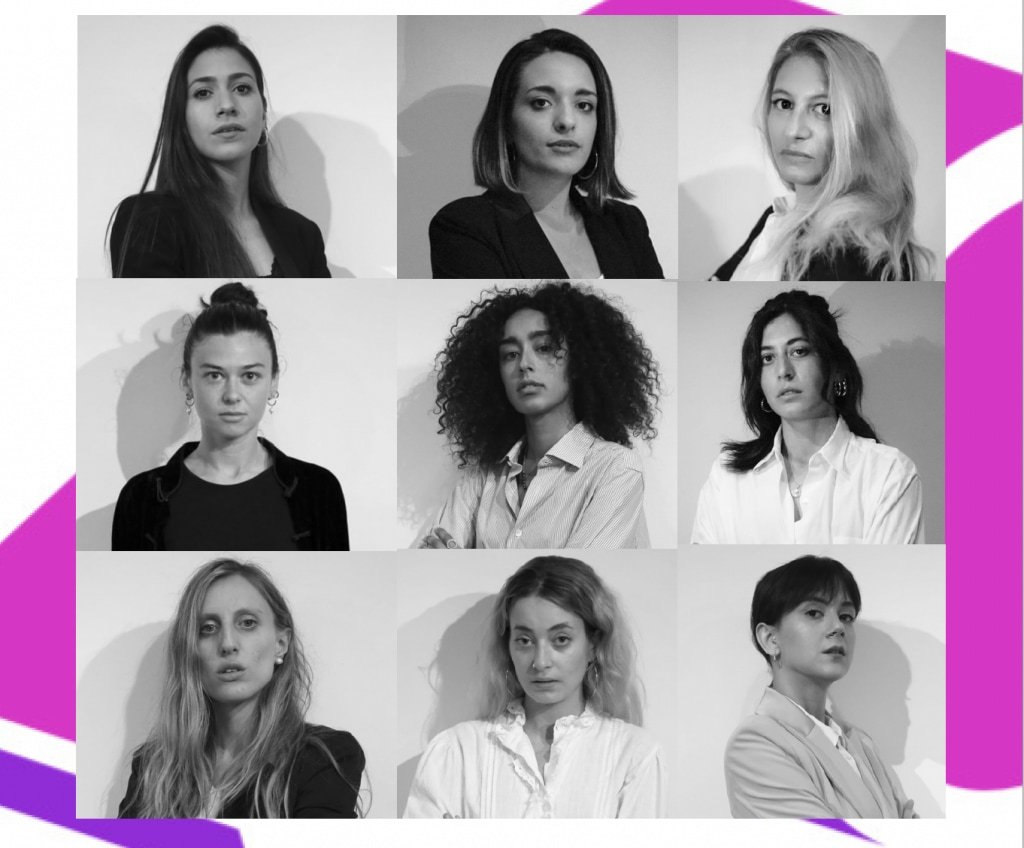Nowhich was made in 2021 as a reaction to his assassination Sarah Everard on the streets of London’s Brixton district, Donnexstrada is today an association that offers specific tools to ensure road safety, as well as various types of support for women. We interviewed two of the co-founders, Bianca Hirata and Laura De Dilectisto take stock of the club’s future developments
It is the end of March 2021 when the psychologist Laura De Dilectisafter learning of his murder Sarah Everard, understands the need to specifically help women feel safer when they come home at night. The next step is already history: with a call to action on Instagram, the Donnexstrada project was born, which immediately went viral with 100,000 followers gained in 8 months.
The service offered is as simple as it is revolutionary: all women who feel in danger when returning home at night can request to receive a video call from Donnexstrada operators.
The success of the initiative immediately reveals a disturbing fact: there are many, many women who do not feel safe on the streets at night.
And so Donnexstrada organizes, expands and structures itself to meet the demands of women who feel at risk.
Today, two years after its birth, Donnexstrada is an association that, in addition to offering accompanying video calls, has developed various programs to ensure greater safety on the road. Among them are Purple dots, i.e. places like bars, restaurants, pharmacies and hair salons where women can turn in case of violence. In addition, Donnexstrada has also started educational seminars and workshops dedicated to secondary school children to raise awareness about gender-based violence. But it does not end there: the association is active in creating a network of suspended taxis and training night vehicle drivers on how to prevent and act in cases of harassment.

Cultures
Safety on trains and at the station: Viola Walk Home investigation begins
We asked Bianca Hirata And Laura De Dilectis to tell us more about Donnexstrada’s course and trajectories for the near future.
Two years after its founding, what project are you working on the most??
BH: Today the most important project is that of Purple Points. The idea comes from Greta Martinez, also a co-founder of the association, following the need to create safer cities. To date we have formed one hundred Purple Points throughout Italy and we have already started again with the training of the next 200. The aim is to sprinkle Italy with Purple Points to create shelters, places to deal with abuse and violence, places where you can meet and feel safe, places where you gain new tools to respect others and help them where there is a need. In addition to this, there are many projects and the desire is to touch various environments: from the cultural to the more institutional, communication with schools and the street. In addition, we work to create awareness campaigns, violence awareness training courses and partnerships with anyone who wants to make our cities safer places.
From calls to street harassment, women are still afraid to return home
Sun. Will it ever be possible to reverse this trend? And if so how? Even to do training?
LD: Women are afraid because there is a real risk of being attacked, harassed, raped, killed. You can find help tools, work on urban planning and transportation, and do intervention projects. But the only real answer is to stop men from assaulting, harassing, raping, killing women and more. Only then can we stop being afraid when we return home.
What is the most important feedback you get from your users?
We get a lot of messages from people thanking us for creating the Donnexstrada project, with Purple Points and the video calling service, which will soon be an app thanks to the startup we created. The feeling you get when a girl thanks you for how much you’ve helped change the way she deals with her days and the way she feels less alone is priceless.
You also offer different types of support, including psychological support: how do you help women who are victims of harassment?
With Donnexstrada we offer four types of support: legal, psychological, nutritional and gynecological. This allows us to help women in 360 degrees, whether they are victims of violence or just want to work for their well-being and their right to be free.
Your club has changed the narrative of gender-based violence, portraying women not as victims, but as informed, empowered people. Why was this necessary?
BH: I am convinced that we need a new way of communicating, expressing and discussing with each other. I believe that to combat gender-based violence we need to invent new ways of approaching, maintaining an almost sacred respect for the subject, but no more taboos. Lots of images of bruised women: having these visual inputs on a daily basis reduces us to the figure of a female victim, creating a wall with the part that hurts. Enough “you can’t talk about”: we must instead talk, talk a lot and find concrete and daily solutions, without hoping to see everything change suddenly, but we must be well aware that deep changes take time and that’s why it’s patience. required. For these reasons, I chose to use bright and pop colors in the visual communication of the Donnexstrada club, to use an inclusive language and to use images that represent the women of the future: free and aware women, united women armed with the desire to fight to explain to the opposite sex what is wrong to find solutions together and break down the patriarchy.

